
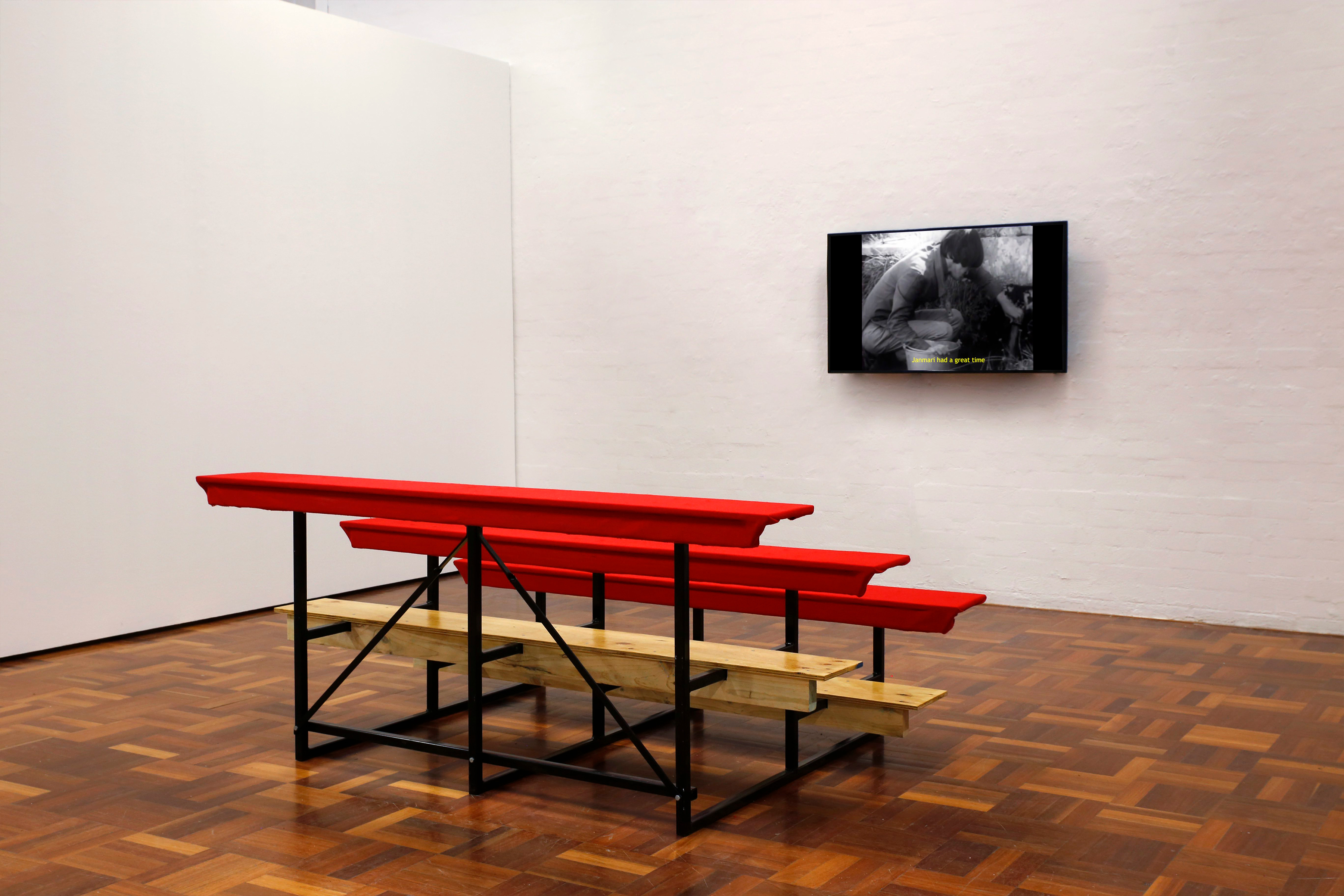
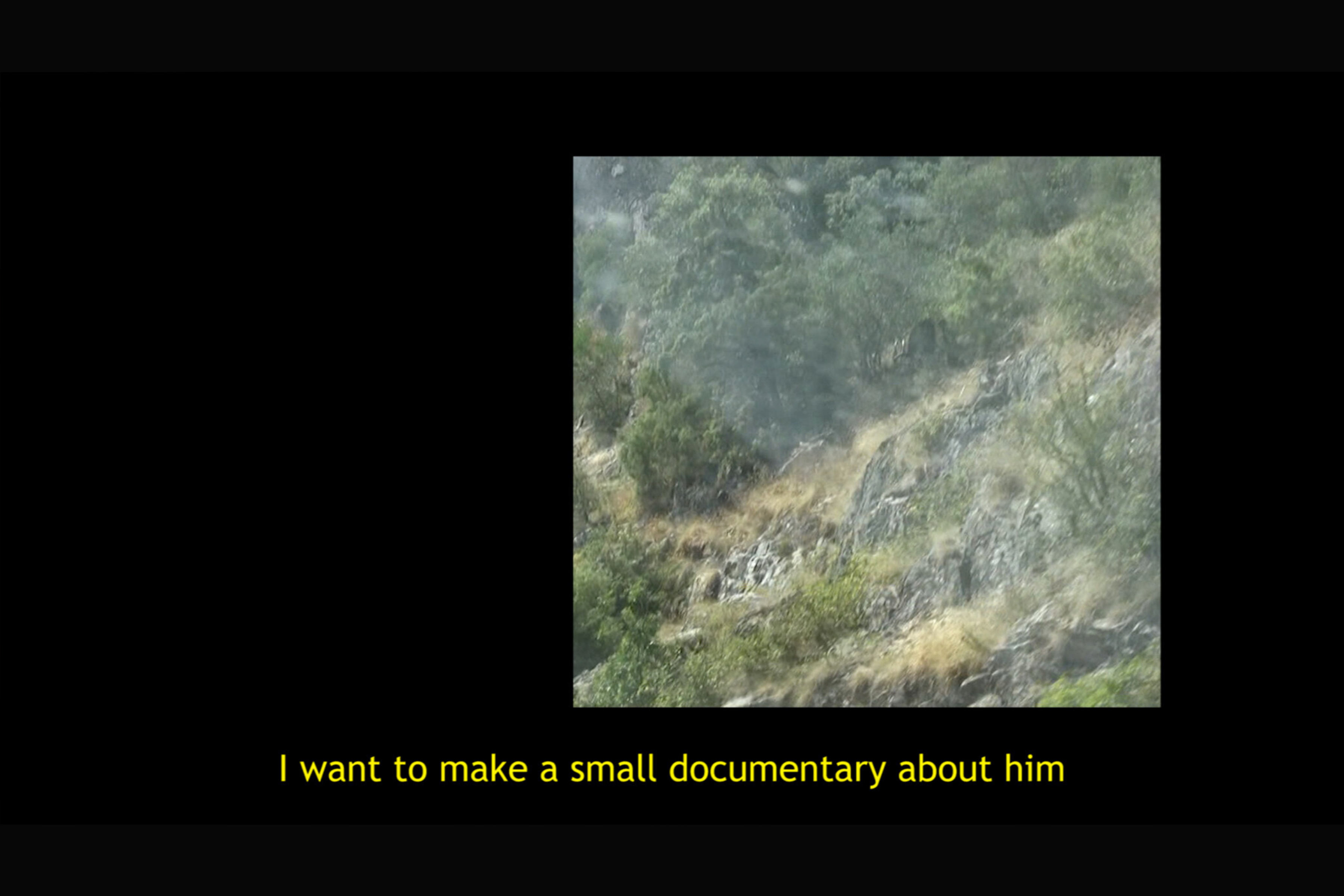
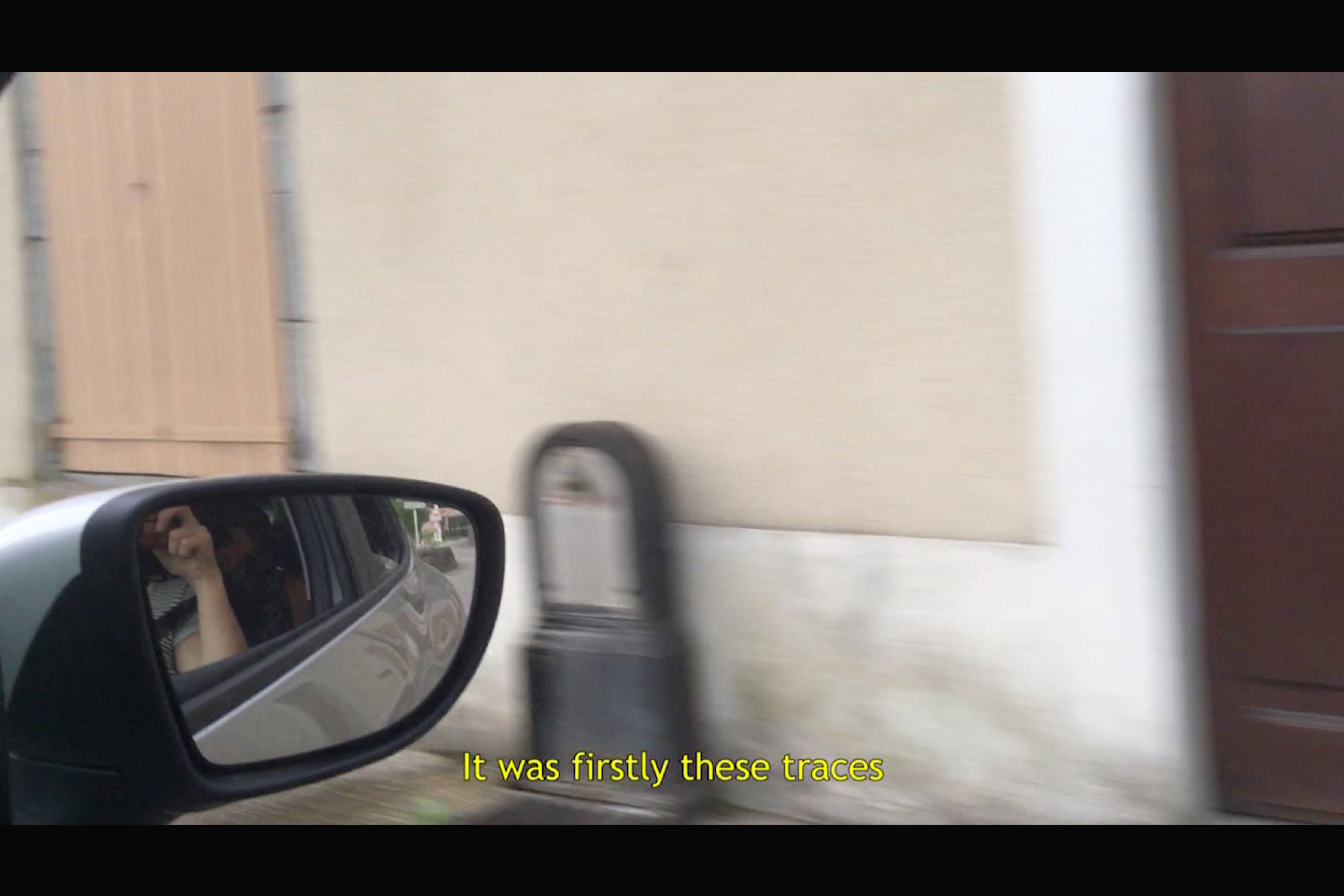
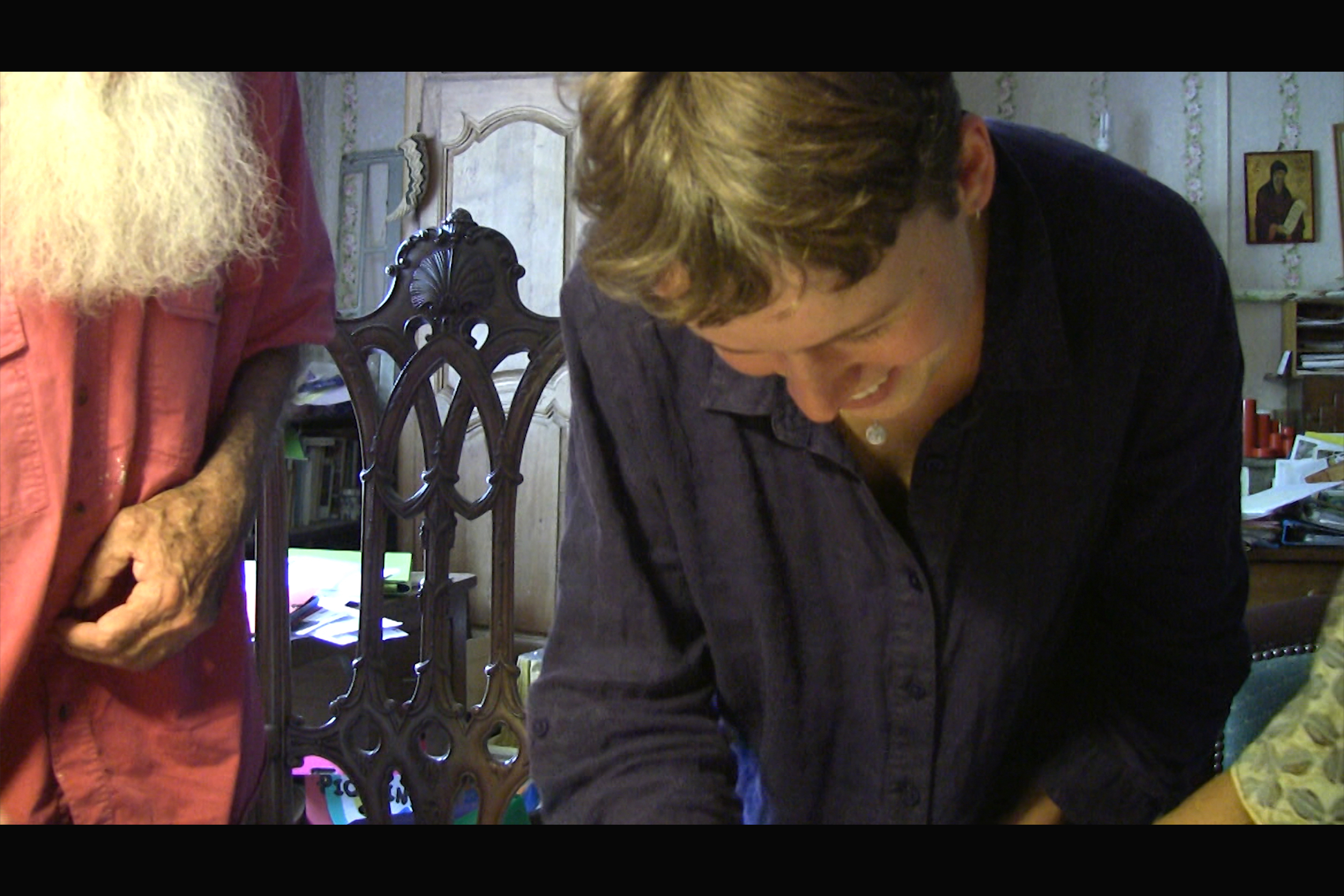
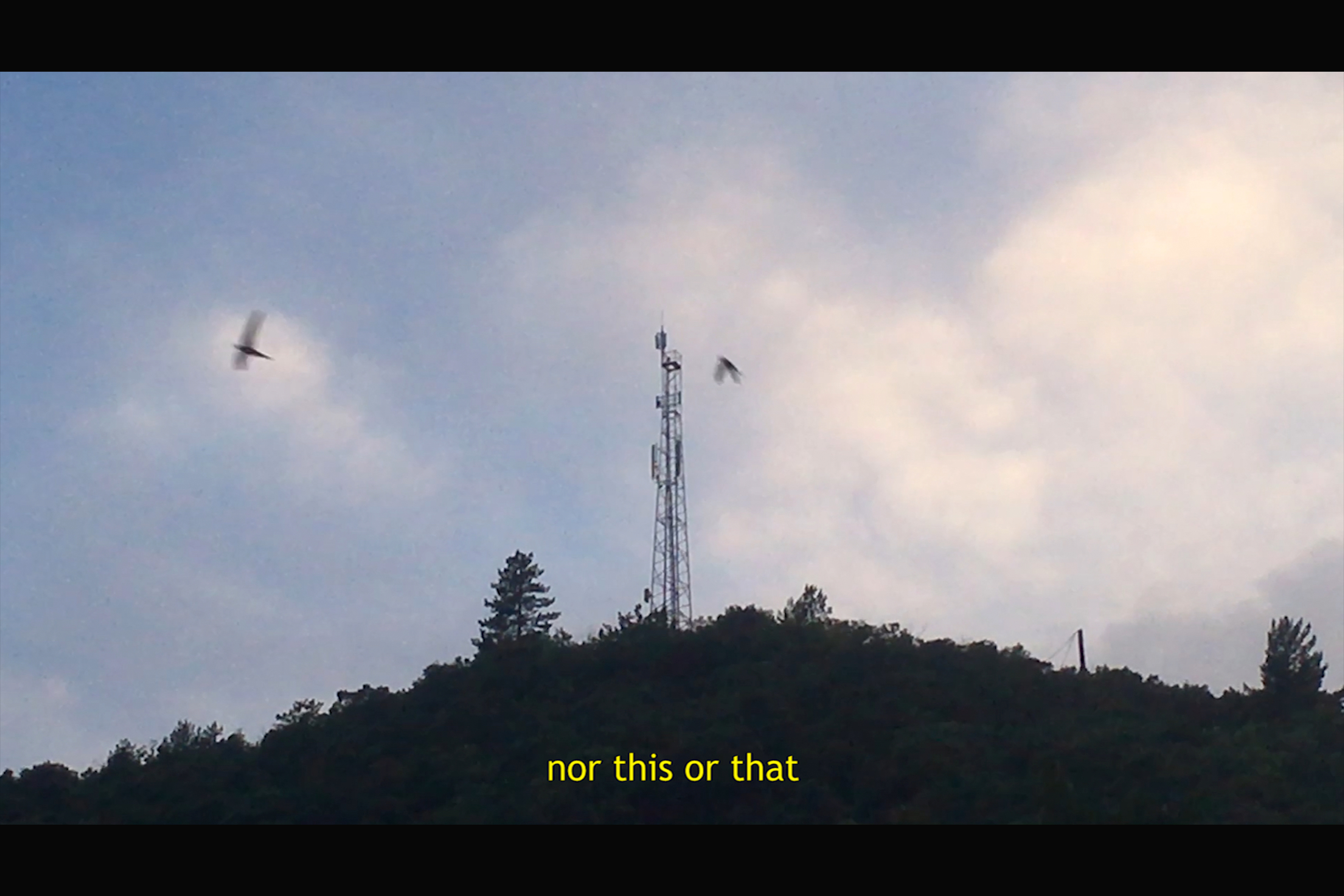
The Time of the Cévennes, video and mini-dv transferred to video, colour, 16:19, stereo, French & English spoken, French & English subtitles, 25’17”, 2019
The Time of the Cévennes explores the possibilities and limitations of communication and language, and how a particular place might enable a certain space of thinking. The film follows me looking for Fernand Deligny, a radical educator who worked with non-verbal autistic children in the Cévennes area in France. Deligny shared personal and professional links with Felix Guattari who was known for his work at the experimental psychiatric clinic La Borde. Both Deligny and Guattari were suspicious of language and sought to refuse the compartmentalisation into subject-object and human-nonhuman relations they saw it as enacting. One of the key practices undertaken by people living and working in Deligny’s network of de-institutionalised care was a form of hand-drawn mapping. These maps that traced the movements of children living there were known as cartes de lignes d’erre or maps of wander lines. My film draws on the idea of a loose mapping of people and place in order to communicate the importance of the visual and gestural in language. The film highlights the subjective and non-linear nature of relationality, and seeks to offer a sense of the space in between what can and cannot be fully known.
Read: review
Exhibitions and screenings: The Green Corridor, Brussels, 2025; Project(ion) Room, Brussels, 2023; Prototype, online, 2020; ANU School of Art and Design, Canberra, 2019